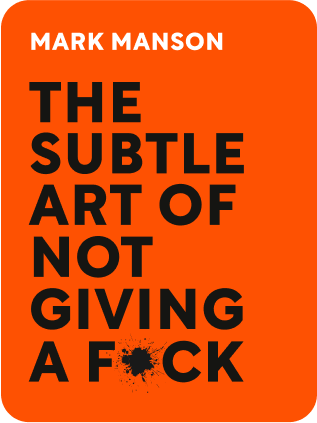

This article is an excerpt from the Shortform book guide to "The Subtle Art of Not Giving a F*ck" by Mark Manson. Shortform has the world's best summaries and analyses of books you should be reading.
Like this article? Sign up for a free trial here .
Why is overcoming obstacles an essential part of happiness? Wouldn’t we be happier if our lives were carefree?
Many of us seek happiness as if it’s an achievement to be won. However, happiness is not a reward, it’s something that grows from overcoming challenges.
Keep reading to learn why you should stop seeking happiness and embrace life’s struggles.
Stop Seeking Happiness
Many people in our culture view seeking happiness as if it’s a formula that can be solved. For instance, we may think: If I get a certain thing or do a certain thing, such as marry the right person or live in the right community, I’ll be happy. Or, we treat happiness as something we can earn or acquire.
However, happiness isn’t something you get in return for an achievement (such as a new job) or something to be found in a “top 10 steps” article from a self-help guru. It’s not something that’s given or that you passively receive, or that is waiting for you somewhere.
Happiness grows from solving problems or overcoming challenges — an activity that improves our lives, creates satisfaction, and is ongoing (creating yet more satisfaction).
Being unhappy or dissatisfied is a necessary component. As the Buddha taught, pain and loss are integral to life and we shouldn’t resist them, but rather allow them to lead us to something better.
Suffering and dissatisfaction are actually part of our biology. Dissatisfaction and insecurity spurred our ancestors to search out, build, and fight for better living conditions. They are a survival mechanism for advancing our species that is still useful in motivating us to improve our lives.
As a result, we will always live with a certain amount of dissatisfaction — we’re designed to always be dissatisfied with what we have and wanting what we don’t have.
Dissatisfaction in the form of physical or emotional pain tells us what to pay attention to and tells us our limits. It can be healthy or necessary — from it we learn what to do differently in the future. For instance, when we get burned, we learn not to touch a hot stove again.
Pain also indicates something is out of whack, and spurs us to fix it.
Struggle is Part of Happiness
Most people can easily answer the question, “What do you want from life?” They say the same things: They seek a happy, carefree life, with all the things they desire.
But because happiness grows from solving problems and overcoming challenges, it requires struggle — for instance you might struggle to improve your relationship skills, or to become physically fit.
The real question is: What are you willing to fight for? What pain are you willing to endure to get what you want? Your answer determines how your life turns out.
For example, many people want the promotion to the corner office but not the 65-hour work weeks it takes to get there and stay there. Author of The Subtle Art of Not Giving a F*ck Mark Manson liked the idea of becoming a musician, but eventually realized he didn’t have the motivation to do the work required to get there. (Our culture would define this as a failure, but actually it meant that he didn’t really want to be a musician in the first place.)
Often people fixate on the results they want, and ignore the process required to achieve it. Or, they settle for what’s easier, to avoid a struggle. But they end up unhappy, because struggle is a necessary component of achieving the satisfaction that comes from taking on challenges and solving problems.
You have to accept and engage with (not try to avoid) the negative aspects of an experience in order to get to the positive ones. Again, you don’t end up with a great body without the pain of exercising. You can’t be a successful entrepreneur if you don’t deal with the risks, failures, and long hours needed to get a new business started. The same applies to love, which entails emotional pain.
You must choose what kind of pain/struggle is meaningful to you. You don’t get to stop striving in life because striving for worthwhile things, as opposed to superficial things, is the point. Your trajectory should be an ongoing upward spiral of solving more and more problems.

———End of Preview———
Like what you just read? Read the rest of the world's best book summary and analysis of Mark Manson's "The Subtle Art of Not Giving a F*ck" at Shortform .
Here's what you'll find in our full The Subtle Art of Not Giving a F*ck summary :
- How to clarify what's important to you (and not just what you think should be important)
- Why it's okay for things to not always go well in life
- Why you need to care about fewer things






